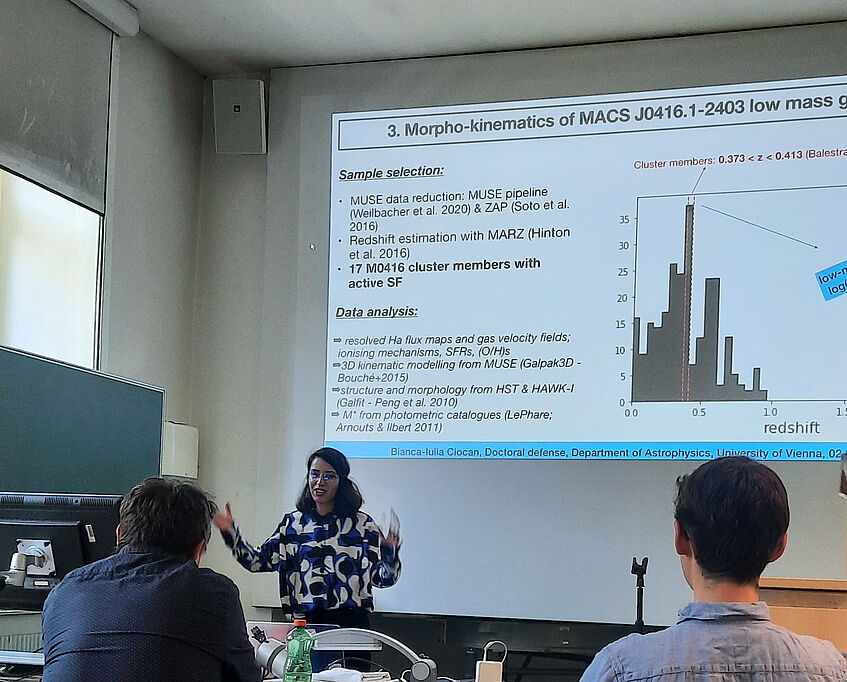Congratulations to Dr. Bianca Ciocan on the successful defense of her doctoral thesis

Bianca Ciocan ©
Congratulations to Dr. Bianca Ciocan on the successful defense of her doctoral thesis
The Department of Astrophysics celebrates the successful PhD defense by Bianca Ciocan. The brand-new doctor presented the thesis “The properties of galaxies in environments of clusters at their peak assembly epoch” on June 2, 2023 at the Observatory of the University of Vienna.
Ciocan investigated if high-density cosmic environments have an impact on how star forming galaxies evolved at a time in which the Universe was about one third of its present age. The sample of galaxies comes from three massive galaxy clusters. The observations were taken with world-class facilities. Spectroscopy was acquired with European Southern Observatory (ESO) – Very Large Telescope’s instruments Visible MultiObject Spectrograph (VIMOS) and Multi Unit Spectroscopic Explorer (MUSE), whereas photometry came from the Hubble Space Telescope (HST) and ESO’s High Acuity Wide field K-band Imager (HAWK-I). By means of these observations, it was possible to track any reshaping on the morphology of a galaxy triggered by quenching of star formation, which in turn occur due to different gravitational and hydrodynamical mechanisms present in the different clusters.
Bianca carried all her university studies at the University of Vienna, from Bachelor’s to PhD. For her PhD project she joined the Observational Extragalactic Astrophysics research group led by Professor Bodo Ziegler.
My experience at the Department of Astrophysics was lovely, as I had the full support of the whole research group for my different PhD sub-projects. I had the opportunity to teach and supervise students, which was crucial for my future academic career. Through the Vienna International School of Earth and Space Sciences (VISESS), I got to know many amazing PhD students working on very exciting projects, many of which I would like to collaborate with in the future.
In a few months, Ciocan will continue her academic journey with a post-doc position at the Centre de Recherche Astrophysique de Lyon in France. Her goal is to analyze the kinematics of a large sample of intermediate redshift star-forming galaxies. She will use very deep MUSE observations and compare them to simulations to test for different models of dark matter.
